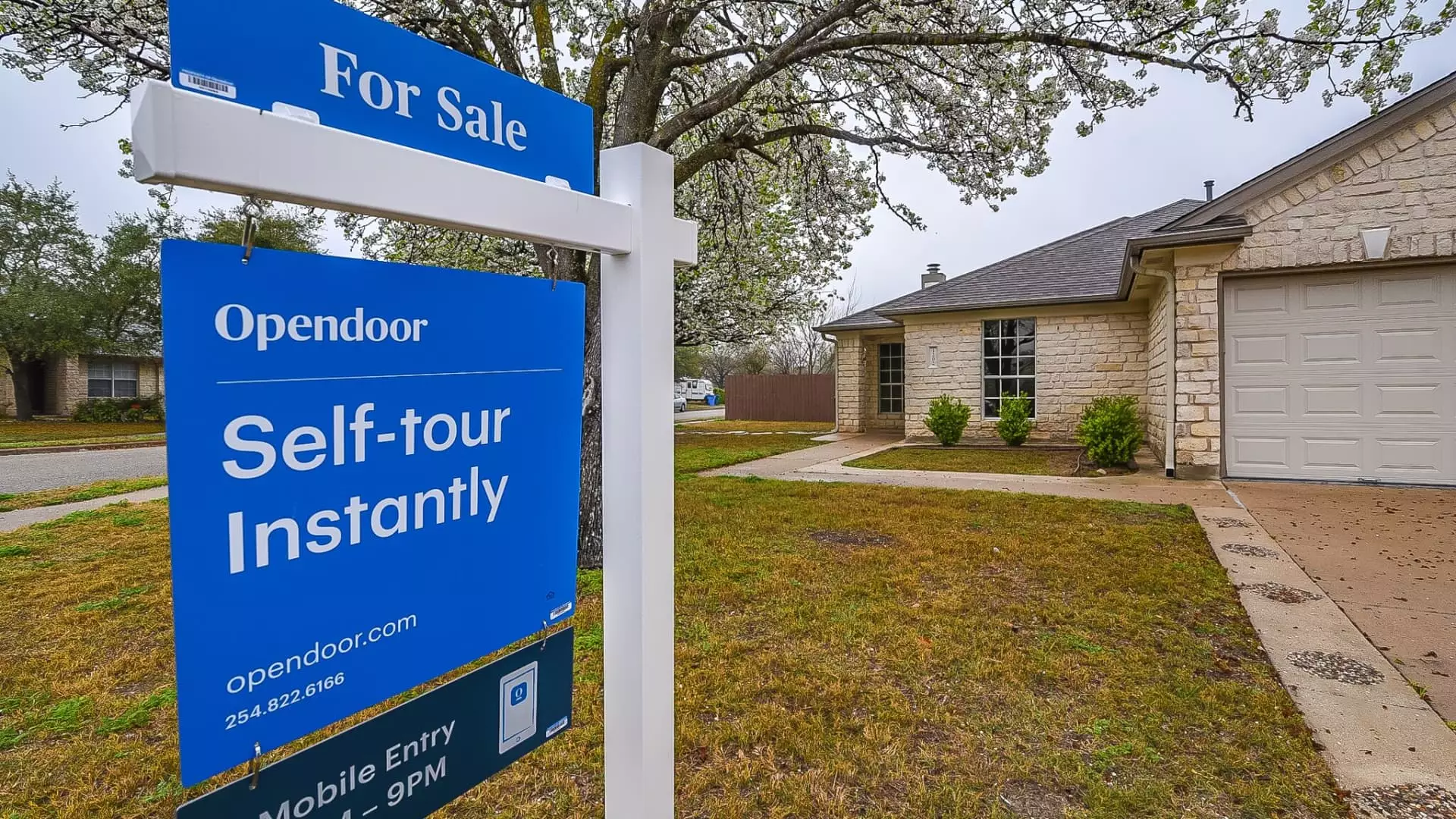Recent weeks have seen Opendoor’s stock skyrocket, elevating its valuation in traders’ eyes and inspiring a wave of optimistic forecasts. This sudden influx of investor enthusiasm, amplified by prominent hedge fund endorsements, creates an illusion that the company is on a rapid path to recovery. However, beneath this surface-level rebound lies a fragile foundation built more on speculation than sustainable growth. The surge feels more like a fleeting mirage propelled by market sentiment rather than genuine operational strength. When excitement wanes—or if macroeconomic conditions shift—the underlying issues will resurface with even greater ferocity, exposing the vulnerability of Opendoor’s business model.
Race to Profitable Stability Is Flawed and Delayed
The core challenge facing Opendoor is its inability—or perhaps unwillingness—to generate consistent profits amid a deteriorating housing market. Despite claiming a slight revenue increase in recent quarters, the company’s financial health remains precarious. It reported narrowing net losses, but the scale of its revenue decline—down by over 60% from 2022—speaks volumes about its fundamental struggles. The optimistic narrative centers on expanding into less capital-intensive business segments, such as referral services. But these efforts seem more like a strategic smoke screen than a genuine pathway to stability. Without a clear trajectory toward profitability, the stock’s recent gains risk being nothing more than a band-aid on a hemorrhaging wound.
The False Promise of Market Rebounds and Turnarounds
The recent rally partly owes its momentum to a single investor’s bullish stance, bolstered by the hope that increased market share and revenue growth will ignite a profitable future. Yet, projections for upcoming quarters tell a different story: revenue forecasts dropping sharply, a reduction in home acquisitions, and rising caution in marketing and operational expenses. This skepticism suggests a disconnect between market optimism and corporate reality. Opendoor’s strategic pivot to diversify away from core iBuying activities is noteworthy, but it remains to be seen whether this shift will cure the fundamental flaws or merely delay an inevitable reckoning.
Why Investors Should Be Wary of the Hype
Investors are drawn to Opendoor’s recent surges out of hope—a hope that the company can reinvent itself and return to profitability. But history shows that such rebounds, especially those driven by speculative interest, often—if not usually—prove fleeting. When macroeconomic trends, such as rising interest rates and declining housing demand, heavily impact Opendoor’s core operations, even the most optimistic forecasts crumble. Furthermore, relying on a narrow focus on less cap-intensive referral models raises questions about long-term profitability. The risk is that these are short-term fixes rather than durable solutions, leaving investors vulnerable should the company fail to deliver on its new strategic promises.
The Hard Truth: Market Corrections Will Hit Hard
While Opendoor’s leadership attempts to paint a picture of strategic resilience, a sober analysis reveals that the company remains mired in structural issues. The housing market’s ongoing downturn, characterized by high mortgage costs and tepid demand, will continue to pressure revenues. As the company scales back on acquisitions and marketing, it reveals an awareness of its fragility—yet these moves appear more like damage control than a blueprint for sustainable growth. The recent optimism might ignite short-term trading gains, but long-term investors should approach with caution, understanding that the convergence of market headwinds and internal hurdles could soon dwarf the current hype and plunge Opendoor into deeper instability.


Leave a Reply